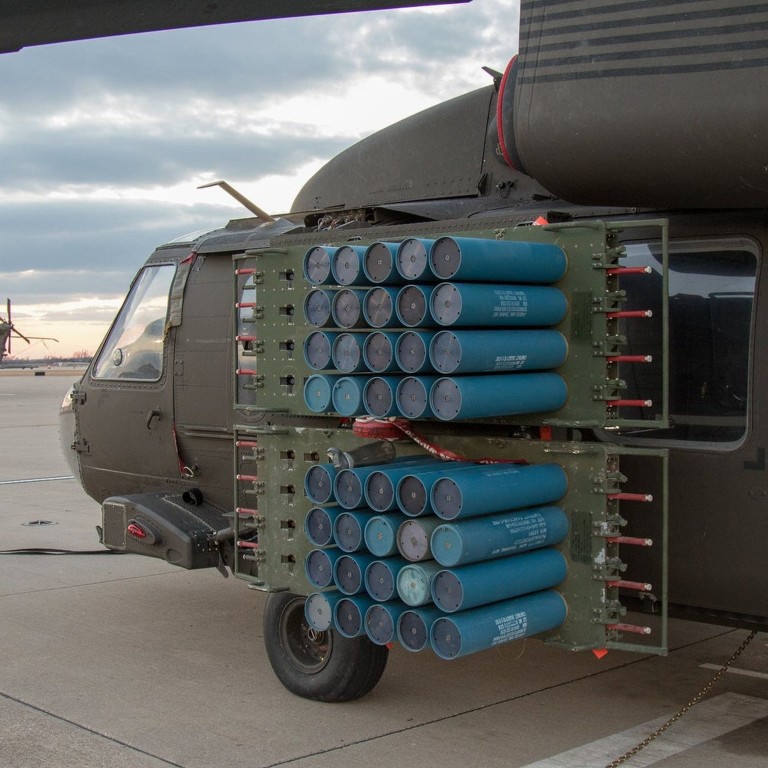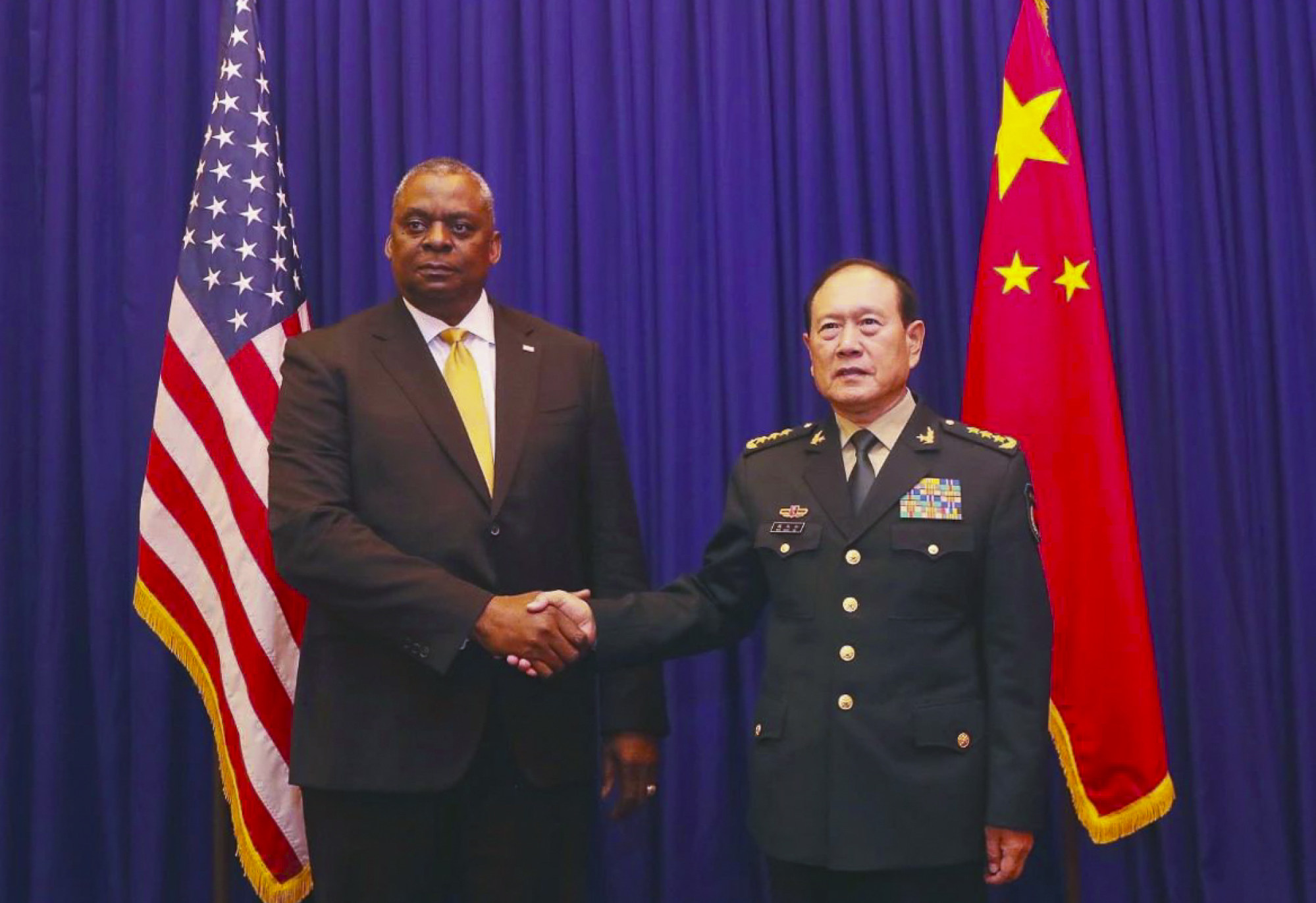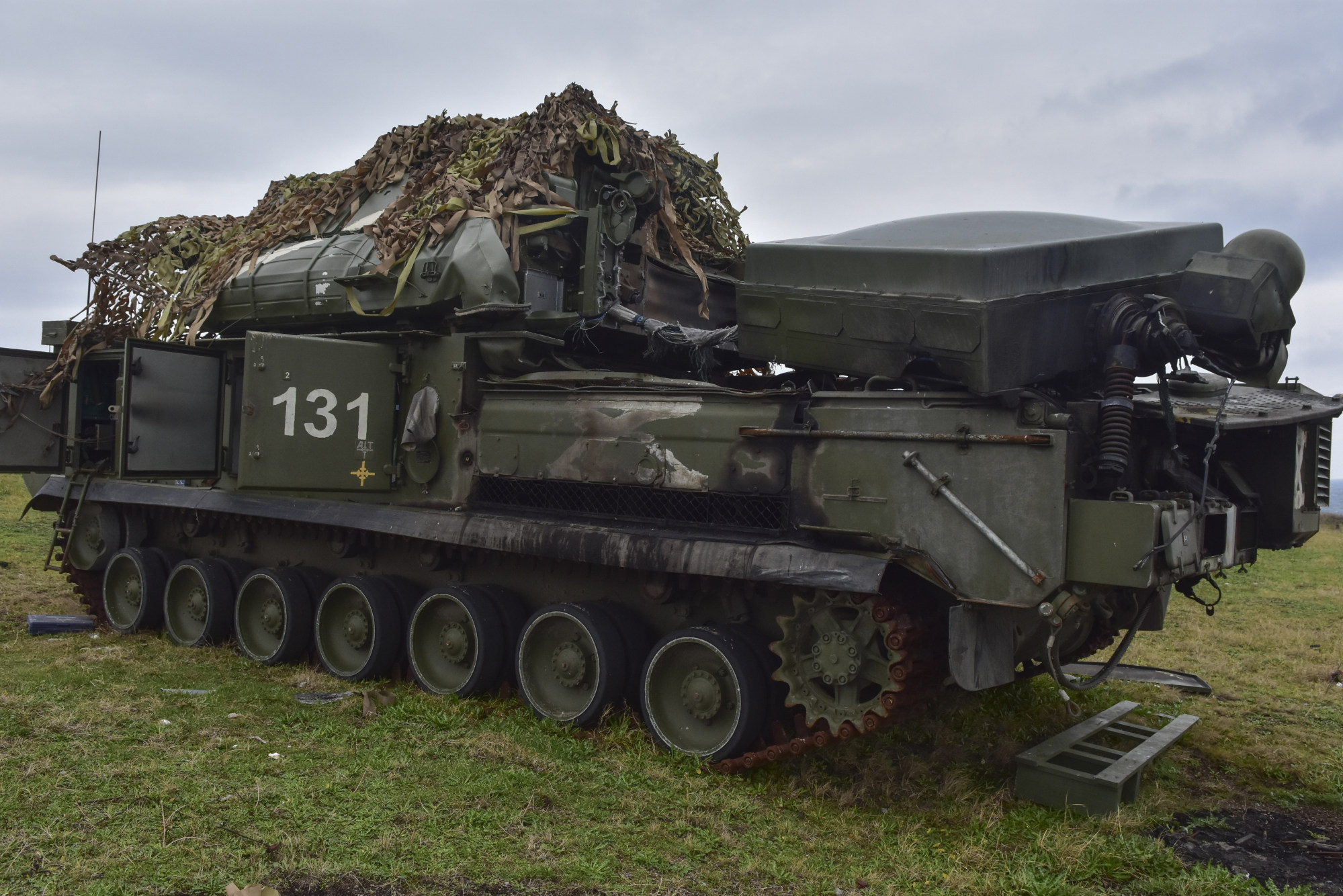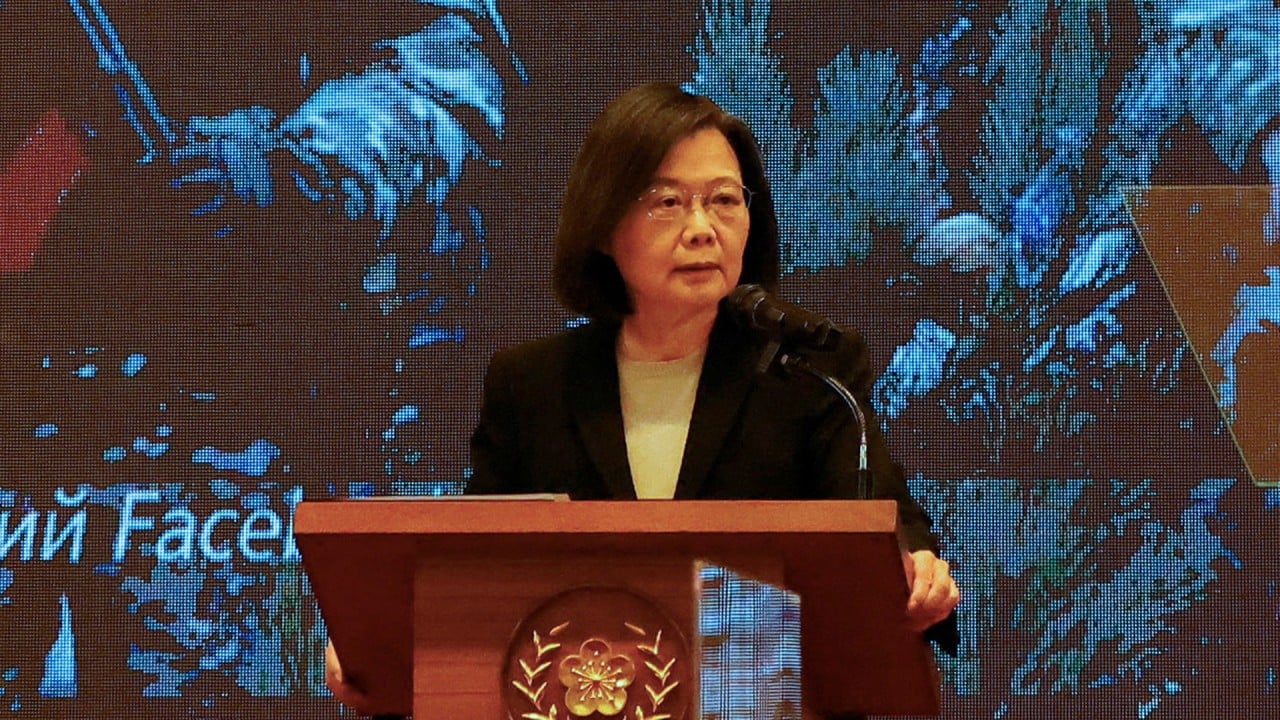
Latest Taiwan arms sale reflects US indifference to mainland China’s reaction
- A US$180 million deal for Volcano anti-tank systems also suggests strategic lessons drawn from Ukraine’s defence against Russia, analysts say
- US grants approval despite China’s recent insistence that resumption of talks between their militaries depends on US ending ‘provocations’ involving Taiwan
The latest US$180 million arms sale to Taiwan, days after China staged a massive show of force near the self-governed island, reflects a growing US willingness to weather angry Chinese reactions and a renewed belief in the importance of asymmetric defence tactics following Russia’s invasion of Ukraine, military analysts and former Pentagon officials say.
The US is notably less willing to pull its punches to ease Beijing’s pique, analysts said. Washington has announced a three-fold increase in the value of weapons sales to Taiwan this year over 2021.
More than that, it went ahead with the latest deal despite suggestions conveyed to US Defence Secretary Lloyd Austin last month by his Chinese counterpart, Wei Fenghe, that any resumption of talks between the two militaries was contingent on the US ending “provocations” involving Taiwan.

China cancelled several planned “mil-to-mil” exchanges after US House Speaker Nancy Pelosi’s August visit to Taipei.
“This demonstrates again that the United States is just going to do what it has to do with Taiwan and if we are paying a price for it with the Chinese, so be it,” said Bonnie Glaser, managing director at the German Marshall Fund of the United States.
“We’re not so desperate to have these meetings and exchanges with the Chinese that we’re going to postpone arm sales to Taiwan.”
Washington has also stopped announcing several Taiwan arms deals simultaneously, instead rolling out individual sales as soon as they are ready, analysts said. Congress has been notified of 10 such deals this year, the most in over three decades, according to the US-Taiwan Business Council.

The latest deal is also informed by Ukraine’s success in countering the Russian military since its March invasion.
Washington has increasingly pressed Taiwan to focus on relatively cheap defensive weapons to repel or deter a Chinese invasion – such as drones, land- and sea-mines and handheld missiles aided by trained civilians – rather than the prestigious, expensive weapon systems favoured by Taiwan’s Ministry of National Defence.
Washington “has prioritized selling cost-effective, asymmetric weapons to Taiwan over traditional systems, evidenced by the spat in May over Taiwan’s proposed purchase of MH-60R anti-submarine helicopters,” said Paul Haenle, a visiting fellow at the National University of Singapore and former China director with the US National Security Council.
“This deal is exactly where the Americans want the Taiwanese to go,” said Sourabh Gupta, a fellow with the Institute for China-America Studies in Washington. “Don’t go for big-ticket items like helicopters which are going to hunt submarines. Go for items which are cost-efficient, which have asymmetric capabilities, typically mobile.”
“It’s not just about extending conscription, but she also made the point that these guys are not raking leaves and picking up tires and those sorts of things. They are going to be trained in these assets.”
China views Taiwan as a breakaway province to be united with the mainland by force if necessary. Few countries, including the United States, recognise the self-governing island as an independent state, but Washington is bound by law to support Taiwan’s defence capabilities.
Militaries throughout history are accused of adopting strategy, tactics and weaponry more suited to the last war than the next one, but analysts said that the Ukraine conflict provides convincing evidence on the effectiveness of asymmetric strategies in holding off far more powerful invaders and suggests where future wars are headed.
Still, it remains far from clear how committed the relatively prosperous Taiwanese would prove in an actual conflict, or how effective China would be in any invasion given that its last war was in 1979 against Vietnam, and only lasted a month.
“Over the past year, there’s a sense that we now have so much data on the efficiency of this type of strategy,” said Sarah Kreps, a government and law professor at Cornell University and former US Air Force intelligence official. “The Chinese military seems to be pretty robust. But they haven’t ever actually been tested in a meaningful way.”
The anti-tank system approved on Thursday is seen as part of a layered asymmetric defence aimed at laying landmine fields, should sea-based mines and missile defences falter, to hold off – or, ideally, deter altogether – any Chinese invasion until US military forces arrive.
“The Volcano system can rapidly mine a beach or landing area, amphibious or airborne landing zone, with anti-tank and anti-personnel mines, ideal for deploying quickly on the few landing beaches on Taiwan,” said Larry Wortzel, a fellow at the American Foreign Policy Council and former member of the US-China Economic and Security Review Commission.
US moves to strengthen Taiwan military ties ‘a sign of malice’
Others questioned the acquisition. “This is a strange purchase in that, if the Chinese are on the island, one could argue that is game over for Taiwan,” said Christopher Johnson, the president of the China Strategies consultancy.
“That said, if the Chinese were to gain a lodgement and move inland from northern beaches and ports, it’s very urban terrain. So antiarmor weapons like the Volcano could serve the purpose of harassing invading Chinese forces at a minimum, and perhaps bleeding the invader substantially,” added Johnson, a former CIA analyst.
PLA holds drills around Taiwan after Biden signs security bill
The incursions, which included 42 fighter jets, three marine patrol and early warning aircraft and two drones, followed naval exercises by a Chinese aircraft carrier group near Japan on Friday.
The Chinese embassy in Washington decried the Volcano deal. “The arms sales undermine China’s sovereignty and security interests,” said spokesman Liu Pengyu, adding that the US should “stop using Taiwan to contain China and stop moving even further down the wrong and dangerous path.”


